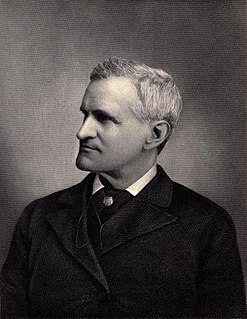A Quote by Mark Twain
The partitions of the houses were so thin we could hear the women occupants of adjoining rooms changing their minds.
Related Quotes
I don't think that there's a target audience at all. These stories were in circulation. The stories were told by men, told in the marketplace by men, but also behind doors by women, but there's no real record of this. It's likely they were told by women to children in their interior rooms. The story could be a negative story, they could be presented as a, "Watch out! Women will get round you, do things to you, weave you in their toils." It could be buried in it an old cautionary story about women and their wiles.
The women all had big minds because they were big animals, but they didn't use them for this reason: unusual ideas could make enemies and the women, if they were going to achieve any sort of comfort and safety, needed all the friends they could get. So, in the interest of survival they trained themselves to be agreeing machines. All their minds had to do was to discover what other people were thinking and then they thought it too.
Trump is probably disrespected women all of his life. His alignment with women has been with his beauty pageants. And those women said he walked into the rooms where they were changing clothes and he thought that was fine and he had a right to do it. I think that's reflected in his leadership and public policy.
It is a dreadful thing to see the dead city. Next to the port I found children, women, the old, waiting for a way to leave. I entered the houses, there were houses where the coffee and pita bread were left on the table, and I could not avoid [thinking] that this, indeed, had been the picture in many Jewish towns [i.e., in Europe, during World War II].
In our young minds houses belonged to women were their special domain, not as property, but as places where all that truly mattered in life took place - the warmth and comfort of shelter, the feeding of our bodies, the nurturing of our souls. There we learned dignity, integrity of being; there we learned to have faith. The folks who made this life possible, who were our primary guides and teachers, were black women.
My nana was always a widow as long as I was alive; my grandfather died before I was born. All the women on my street - there were four houses in a row with all old women who lived alone who were widowed. They all had kids, but they were all widowed. My mom didn't put me in preschool; I didn't know that was a thing. I just hung out with these women all day.
He lived in chambers that had once belonged to his deceased partner. They were a gloomy suite of rooms, in a lowering pile of building up a yard, where it had so little business to be, that one could scarcely help fancying it must have run there when it was a young house, playing at hide-and-seek with other houses, and forgotten the way out again.





































